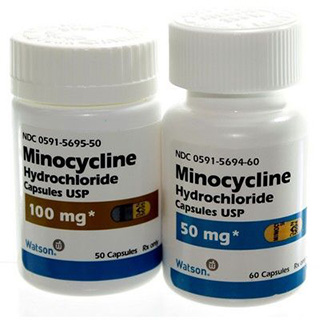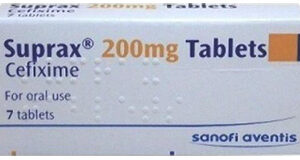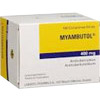Minocycline is a broad-spectrum antibiotic drug that belongs to the tetracycline class. It is primarily used to treat various bacterial infections such as acne, respiratory tract infections, sexually transmitted diseases, and urinary tract infections. Minocycline works by inhibiting the growth and reproduction of bacteria, thereby preventing the spread of infection within the body. This medication is available in both oral and intravenous forms.
Minocycline is a semi-synthetic derivative of tetracycline and exhibits enhanced potency against a wide range of bacteria. It is known for its ability to penetrate tissues effectively, including the central nervous system, making it useful in the treatment of certain neurological conditions.
Restrictions
Minocycline should not be taken by individuals who have a known hypersensitivity or allergy to tetracyclines. It is also contraindicated in pregnant women, as it can cause harm to the developing fetus and interfere with bone development. Children under the age of 8 should not be prescribed minocycline due to the risk of permanent tooth discoloration and impaired bone growth.
Side Effects and Solutions
Common side effects of minocycline include nausea, vomiting, diarrhea, dizziness, light-headedness, and skin reactions such as rash or itching. These side effects are usually mild and resolve on their own. If they persist or become severe, it is important to consult a healthcare professional.
In rare cases, minocycline may cause more serious side effects, such as severe headache, blurred vision, confusion, muscle weakness, or increased sensitivity to sunlight. These symptoms may indicate a more severe reaction and require immediate medical attention.
If skin discoloration, tooth discoloration, or enamel hypoplasia occur, it is important to discuss these effects with a healthcare provider.
Taking Minocycline Safely
Minocycline should be taken exactly as prescribed by a healthcare professional. It is typically recommended to take the medication with a full glass of water to prevent irritation of the esophagus. Taking minocycline with food may help reduce stomach upset.
If a dose of minocycline is missed, it should be taken as soon as remembered. However, if it is near the time for the next dose, the missed dose should be skipped and the regular dosing schedule should be resumed. Double dosing or taking extra doses should be avoided.
In case of overdose, symptoms such as severe headache, dizziness, nausea, vomiting, or abdominal pain may occur. Immediate medical attention should be sought if an overdose is suspected.
Minocycline and Concomitant Drugs
Minocycline may interact with certain medications, potentially affecting their effectiveness or increasing the risk of side effects. It is important to inform the healthcare provider about all current medications, including over-the-counter drugs, supplements, and herbal products, before starting minocycline therapy.
Drug interactions may occur with medications such as antacids, iron supplements, penicillins, oral contraceptives, methotrexate, and warfarin. The healthcare provider will be able to determine the appropriate dosage adjustments or recommend alternative treatments if necessary.
Ask and Answer
-
Can minocycline be used during pregnancy?
Minocycline is contraindicated during pregnancy due to its potential harm to the developing fetus and interference with bone development. Pregnant women should discuss alternative treatment options with their healthcare provider. -
Does minocycline interact with birth control pills?
Minocycline may reduce the effectiveness of oral contraceptives. Additional or alternative forms of contraception may be necessary while taking minocycline. -
Can minocycline be used in children?
Minocycline is generally not recommended for children under the age of 8 due to the risk of permanent tooth discoloration and impaired bone growth. Pediatric patients should be evaluated by a healthcare professional to determine the most appropriate treatment option. -
Can minocycline cause photosensitivity?
Yes, minocycline can increase sensitivity to sunlight, leading to an increased risk of sunburns and skin reactions. It is important to use sun protection measures such as sunscreen, protective clothing, and avoiding excessive sun exposure while taking this medication. -
How long does it take for minocycline to start working?
The exact onset of action may vary depending on the condition being treated. Improvement in symptoms may be observed within a few days to a few weeks. It is important to complete the full course of treatment as prescribed to ensure effectiveness.






Reviews
There are no reviews yet.